Does SPS have the right plan to fix discipline? Board candidates weigh in, seek changes
In recent interviews, Springfield school board candidates were asked if they believe the state's largest school district has the right plan in place to address discipline.
They were asked if changes were needed and, if so, what else they want to see in the plan. The length of responses, and level of specificity, varied by candidate.
On April 2, voters will elect three candidates to join the seven-member governing body. There are three incumbents running: Scott Crise, Danielle Kincaid and Maryam Mohammadkhani.
The board sets policy, approves an annual budget, and hires and evaluates the superintendent.
Here are the candidates' answers:
Scott Crise
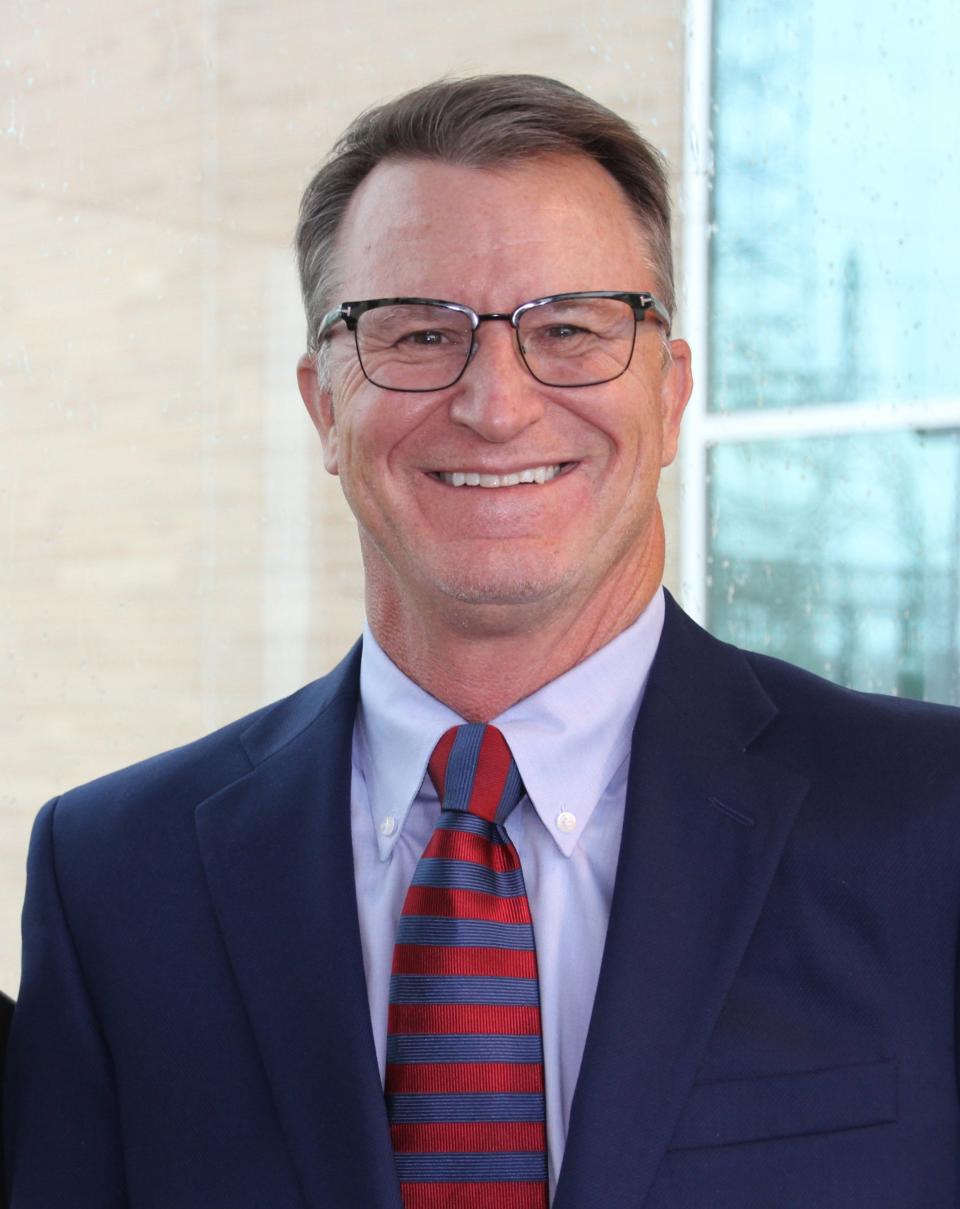
Crise, manager of gas plant operations at Associated Electric Cooperative, Inc., said Lathan and her leadership team have worked hard to put together this plan to address discipline from multiple directions.
"They're working to really promote positive, supportive school cultures where there is effective communication and fair and consistent discipline measures," he said.
He said the district took a "critical step" to set expectations at the start of the year by sending home a printed copy of the student handbook.
Among other things, the handbook spells out the specific consequences students can face by breaking the rules and misbehaving in school or at a school activity.
"SPS could do better at being consistent in enforcement of the student handbook across the district, from school to school. It needs to be consistent," he said.
Crise said the role of the board is to review progress and to provide the resources to support change.
"The board needs to look at the data on discipline and the incidents to find if there are any patterns there and any strategies we could put in place to improve discipline."
He said the creation of the Focus Room option in each building was a positive step.
"We also need to make sure the teachers and staff, and the principals, are trained properly and they have effective classroom strategies like de-escalation techniques," he said.
Danielle Kincaid
Kincaid, the board president, said the plan put forth by the superintendent was intended to be a living document that is constantly under review and evolving based on the need and changing circumstances.
"That is part of the plan, to continue to evaluate the plan that is in place, and she is doing that," said Kincaid, who is an attorney and partner with the Elder Law Group. "I think we will see changes in the future as we continue to evaluate the plan."
Landon McCarter
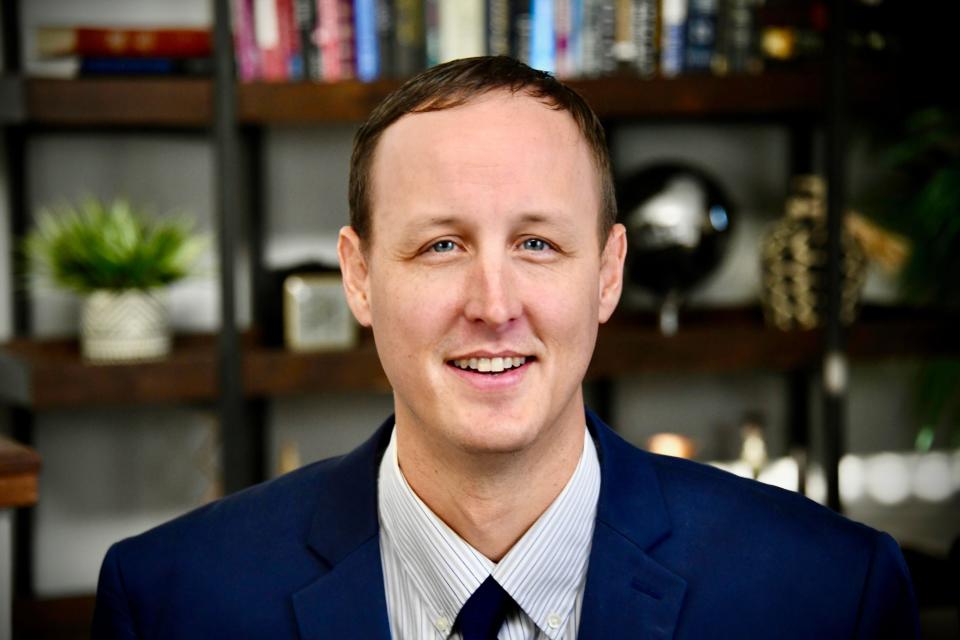
McCarter, a business owner and entrepreneur, pointed to recent, headline-grabbing incidents including an assault at Hickory Hills Middle School and a cafeteria fight at Parkview High School. "I don't feel that we are doing enough as a district to get this under control."
He applauded the district for using federal pandemic relief funds to add temporary support positions to classrooms in an effort to improve behavior. He said with the extra funds drying up this spring, he worries the district will take a step back if it cuts the positions.
"That was the first thing the district did to help sort of pressure release the behavior and the lack of consequences in the classroom, etc. and I think we're going in the wrong direction with releasing those positions," McCarter said. "I understand it was part of the plan to release them. I understand that we don't have the budget."
He said critical behavior-related positions ought to be "reintegrated into the budget" and cuts made elsewhere.
"We need to be able to relook at how much resources can we allocate to make sure that behavior is under control and that teachers can do what they are called to do," he said.
He said the level of discipline issues experienced today is worse than when he was enrolled in the district or his dad was teaching.
"We just have more of those challenges, which means it's a new job for these teachers and this administration," he said. "It is not an easy one."
Maryam Mohammadkhani
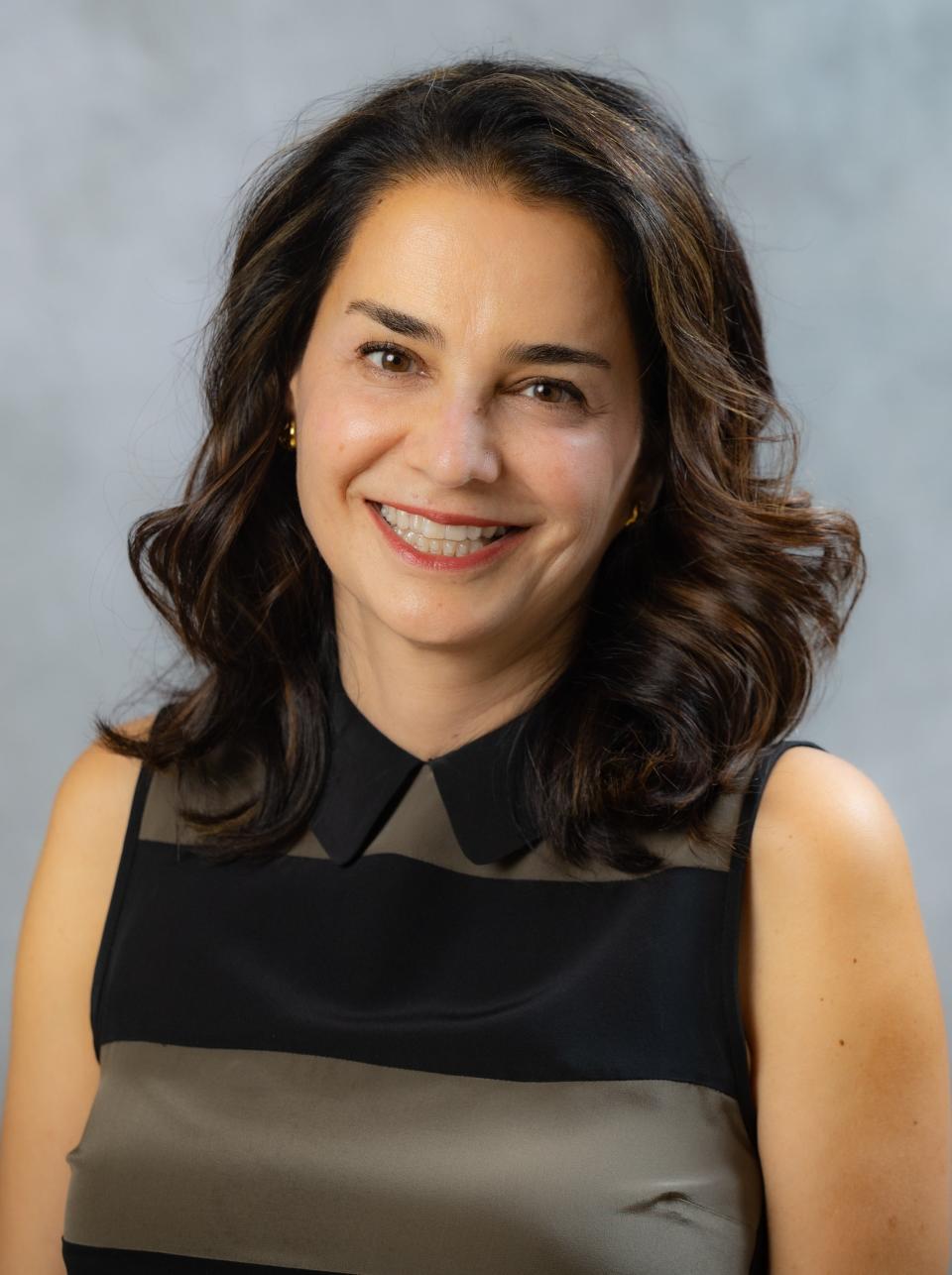
Mohammadkhani, a retired pathologist, said she believes the "pieces are coming into place and that we are moving in the right direction" when it comes to addressing student behavior.
"But, continual change is still needed," she said.
She said there are multiple factors that contribute to poor behavior and they include, among other things, limited social skills due in part to too much screen time, and low student achievement.
Mohammadkhani said many of the discipline issues that schools deal with start in the home. She said by modeling good behavior and creating "order and routine" at home, parents can help students learn at school.
She said a multifaceted approach is needed to improve student behavior and it includes proactive measures that will strengthen peer interaction, reinforce positive behavior, and reduce distractions in the classroom.
"We've got the proactive measures, the appropriate environment and then we come through with the appropriate reactive measures that will be necessary sometimes to maintain that disciplined, effective learning environment," she said. "And we have to do it by being consistent."
Susan Provance

Provance, a retired Springfield teacher and coach, said the district must protect the time students are actively engaged in learning.
"Student behavior that takes away from learning time needs to be addressed with the school disciplinary code and I believe that we can do better than what we have right now," she said.
Provance said how a teacher handles a misbehaving student can be a "teachable moment for the entire class" but noted there must be consistency and communication for lasting changes.
"We have 50 schools and 50 principals and we have umpteen teachers with different expectations of that classroom control ... The teachers and the principals need to be on the same page when they're working with the student," she said.
"I want the student that needs to be removed from the classroom in that teachable moment to understand there is a consequence. I don't want them to go to the office and be told 'no, no, no' and be sent back to the classroom. I don't think 'no, no, no' is a consequence."
Provance said schools must also have flexibility in how they handle certain situations based on the circumstances or the needs of the children involved.
"We don't have cookie-cutter discipline problems within the classroom," she said. "Everything has got just a little bit of a different spin so you can't write a perfect discipline policy."
She said the teachers and the administration need to listen to each other when it comes to discipline expectations and making changes. "They need to work together."
Chad Rollins
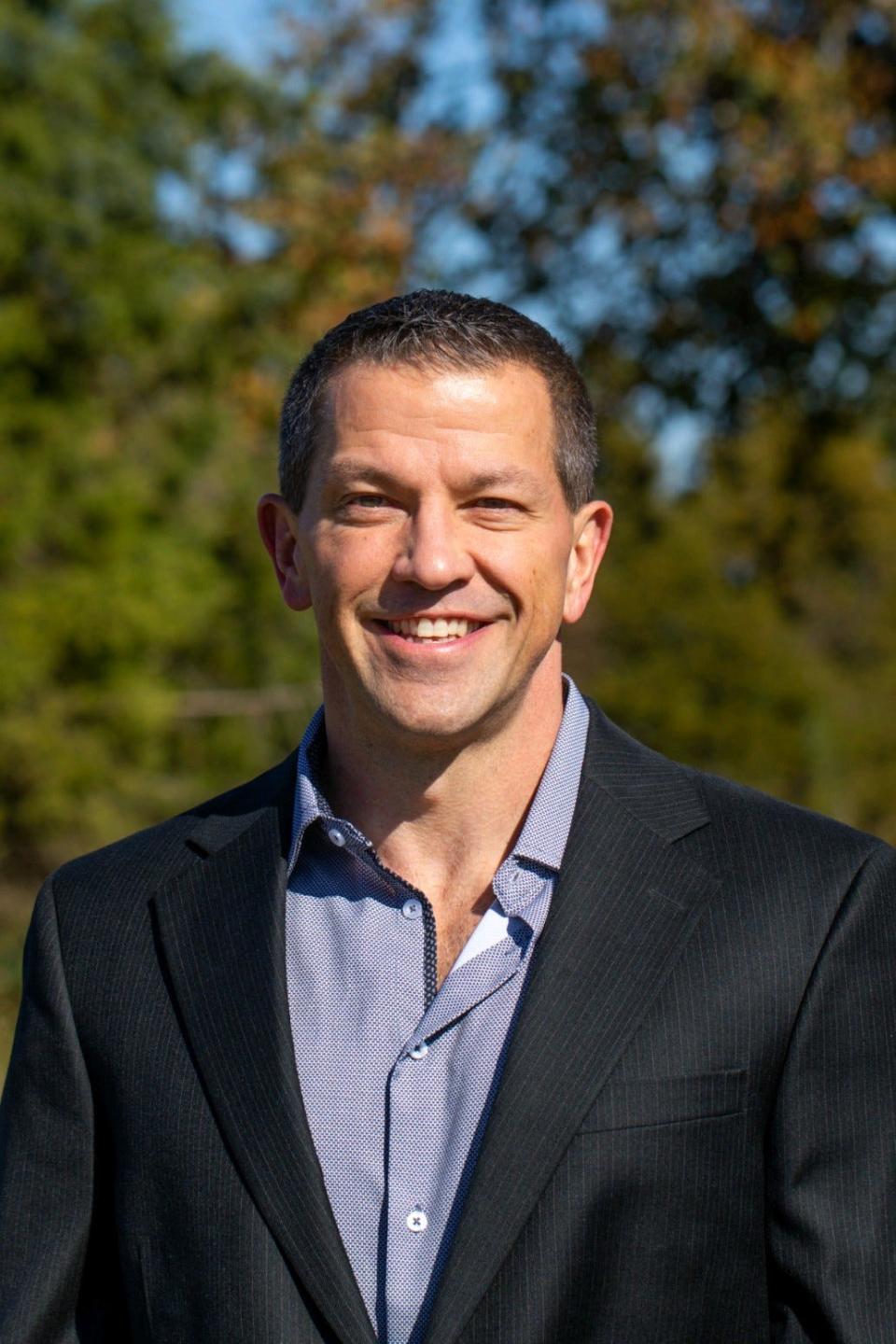
Rollins, director of pharmacy and facility manager at Healthdirect Institutional Pharmacy Services, said students cannot learn in classrooms without discipline. He noted the district is working on the issue.
"I think the policy is in place, I really do. I don't know that we need to change it," he said.
He referenced the recent assault of a middle school student at Hickory Hills and noted more must be done to keep students safe. "Things like that you may not be able to prevent completely but we also don't want to see that."
Rollins said he supports creating a policy that requires the administration to meet with the teachers union to work on discipline and other issues.
"Any issue or conflict that is going on ... the only way to solve it is communication," he said. "We need to have it from both sides. We need to address any of the problems and find out what we can do to help the situation."
Kyler Sherman-Wilkins
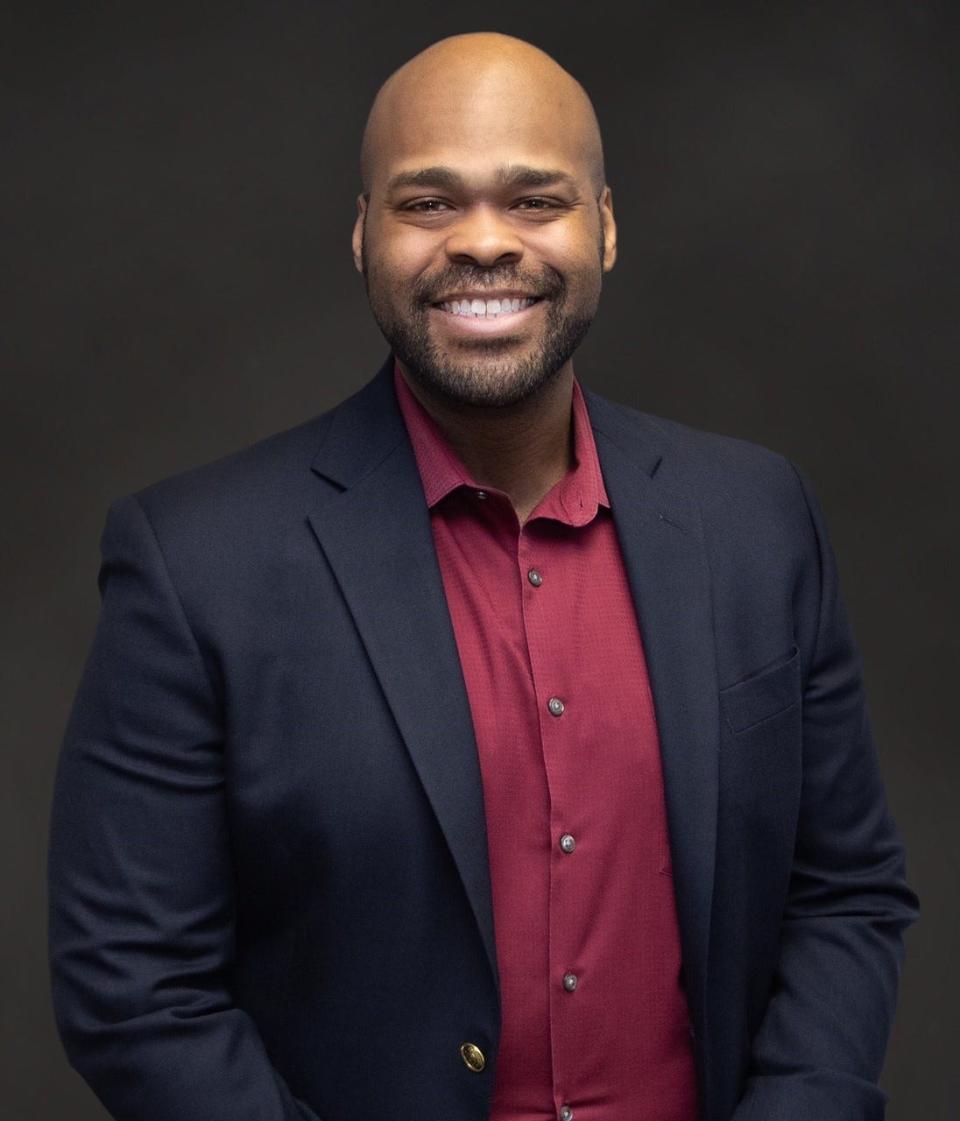
Sherman-Wilkins, an associate professor of sociology at Missouri State University, served on the SPS discipline review team in 2022, which included looking at data and the process.
He said discipline is clearly a problem but it is important to look at the system in place to determine what is working well, and what is not working and why.
"Is it an issue with discipline protocols not being following consistently? Do we see differences across sites? For me, you have a policy and you have enforcement," he said.
Sherman-Wilkins said the district must look for the weak links before embarking on a complete overhaul. He added the district can also identify models where efforts are paying off.
"There are some sites where it is working well. Not every single teacher is experiencing some of these issues and not every single site is experiencing some of these issues," he said.
He said the district must also coordinate with city and state leaders to address student misconduct at the source.
"These students are oftentimes coming from socioeconomic disadvantage, broken homes, maybe violence in the homes," he said. "We have to recognize that while the district can do a lot in terms of what students get when they get to the school building, or classroom, there are all these other conditions that need to be addressed as well."
Want to go?
A new "office hours" event allows the community to visit with Superintendent Grenita Lathan in a casual, interactive setting. Members of the public are invited to share their thoughts and ideas and ask questions.
The next "Office Hours with Dr. Lathan" will be held at 3:30 p.m. Monday, March 25 at the SPS Professional & Virtual Learning Center, 1410 S. Kansas Expressway.
This article originally appeared on Springfield News-Leader: Springfield school board candidates weigh in on discipline plan

